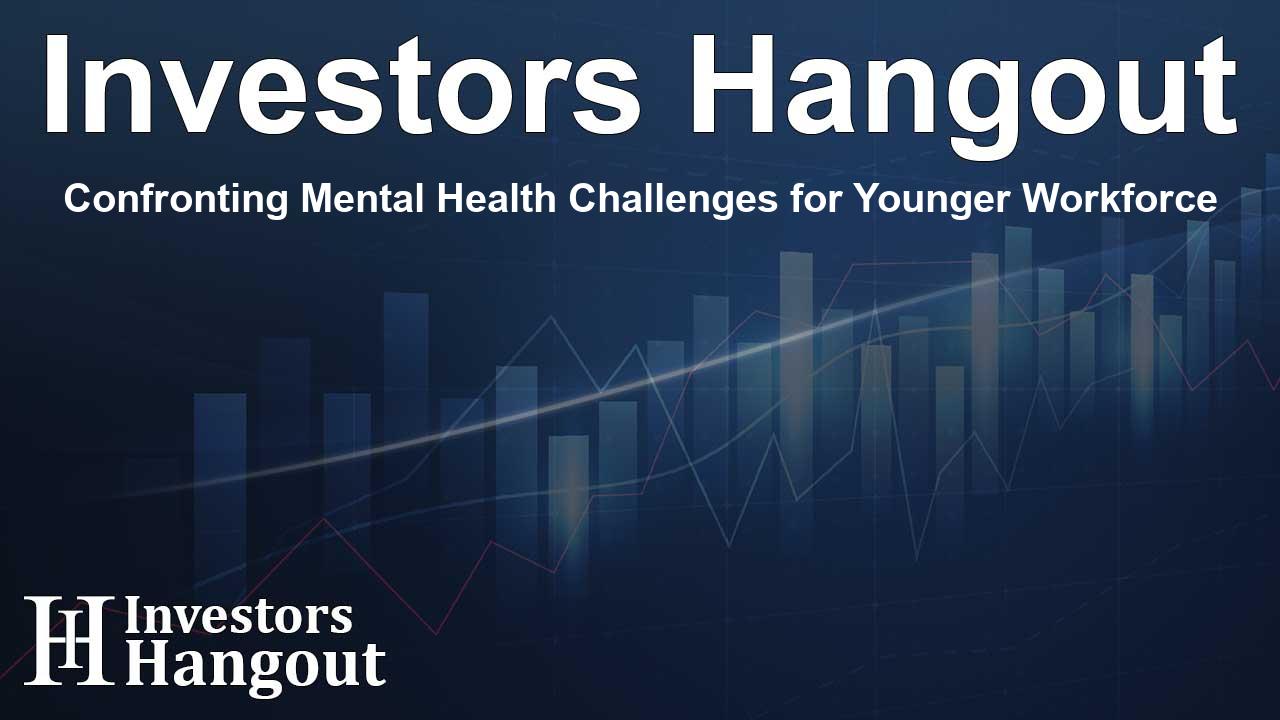Confronting Mental Health Challenges for Younger Workforce

The Growing Mental Health Crisis Among Younger Workers
In today's fast-paced work environment, a significant challenge looms over younger employees, particularly Millennials and Gen Z-ers. Reports indicate that burnout is prevalent, with an alarming 67% of U.S. workers experiencing at least one symptom of this troubling phenomenon. For younger generations, the statistics are even more striking: 77% of Millennials and 72% of Gen Z-ers report feeling burned out, signaling a pressing mental health crisis within the modern workplace.
Understanding the Burnout Experience
Burnout manifests itself through various symptoms, including exhaustion, lack of motivation, and feelings of being overwhelmed. Comparatively, only 62% of Gen X-ers and a mere 38% of Boomers report similar experiences. The differences in burnout rates among generations suggest that Millennials and Gen Z are carrying heavier psychological burdens, navigating their careers in the wake of numerous global crises.
The Impact of Historical Events
Many Millennials have faced considerable turmoil throughout their careers, from economic downturns to health crises like the COVID-19 pandemic. These experiences have heavily influenced their mental health, as they not only manage their roles but are also often tasked with additional responsibilities in mid-level management. The pressure is evident, as noted by Diana Forster, Senior Director of Qualitative Research at Seramount, who emphasizes that increased responsibilities are contributing to heightened stress and burnout levels among these workers.
Perceptions of Well-Being
Despite the increasing awareness of mental health issues, the data reveals that less than half of the younger workforce feels confident in their personal well-being. Only 45% of Gen Z and 47% of Millennials rated their well-being as above average, starkly contrasting with 84% of Boomers and over half of Gen X-ers who feel positively about their mental health state.
Support Systems in the Workplace
Moreover, a significant portion of younger workers feels unsupported in managing their mental health while fulfilling their work responsibilities. Around 68% of Gen Z and 61% of Millennials lack confidence in their companies' ability to provide adequate resources for mental health. This represents a critical gap, highlighting the disparity in support based on generational expectations of workplace culture. Many younger employees joined the workforce at a time when mental health discussions were more prevalent, leading to higher expectations for employer support.
Burnout Among Career Levels
The survey conducted by Seramount also highlighted variances in burnout experiences between different professional levels. For instance, 72% of senior managers, 80% of managers, and 66% of non-managers report experiencing burnout, juxtaposed with only 18% of executives expressing similar feelings. This disparity indicates a concerning divide in how those in positions of power perceive their own stress compared to those who manage the day-to-day responsibilities.
The Importance of a Supportive Work Environment
To address these challenges, organizations must shift towards more comprehensive workplace mental health strategies. Acknowledging the reality of burnout and implementing support systems can create a healthier work environment, ultimately leading to improved employee satisfaction and productivity. Given the evidence of a growing mental health crisis, companies must prioritize initiatives that focus on enhancing mental health resources for all employees, especially younger generations.
Understanding the Survey Methodology
The insights presented stem from a Seramount survey conducted in April 2025, which included 1,000 U.S. employees from companies with a workforce of 500 or more. This diverse group reflects a wide array of industries, job levels, and tenures, making the findings representative of the broader U.S. employee population.
About Seramount
Seramount is a well-known global talent services firm dedicated to helping HR leaders prepare for the future workplace. With over four decades of experience, they focus on creating employee-centric strategies that align with business goals. By leveraging data-driven insights and innovative technology, Seramount aims to cultivate a committed and engaged workforce for their partner organizations.
Frequently Asked Questions
What is burnout, and how does it affect employees?
Burnout is a state of emotional, physical, and mental exhaustion caused by prolonged stress. It can lead to decreased productivity and overall dissatisfaction in work and life.
How do Millennials and Gen Z compare in terms of mental health?
Millennials and Gen Z report higher levels of burnout than older generations, with 77% of Millennials and 72% of Gen Z experiencing burnout symptoms.
What can companies do to support mental health in the workplace?
Employers can implement comprehensive mental health resources, promote open dialogues about mental health, and provide flexibility to help employees manage stress.
Why do younger workers feel unsupported in mental health?
Many younger employees have higher expectations for mental health support based on societal shifts, yet often find their companies lacking in adequate resources.
What is the significance of the Seramount survey?
The Seramount survey provides valuable insights into the mental health challenges faced by U.S. employees, highlighting generational differences and the need for strategic interventions.
About The Author
Contact Riley Hayes privately here. Or send an email with ATTN: Riley Hayes as the subject to contact@investorshangout.com.
About Investors Hangout
Investors Hangout is a leading online stock forum for financial discussion and learning, offering a wide range of free tools and resources. It draws in traders of all levels, who exchange market knowledge, investigate trading tactics, and keep an eye on industry developments in real time. Featuring financial articles, stock message boards, quotes, charts, company profiles, and live news updates. Through cooperative learning and a wealth of informational resources, it helps users from novices creating their first portfolios to experts honing their techniques. Join Investors Hangout today: https://investorshangout.com/
The content of this article is based on factual, publicly available information and does not represent legal, financial, or investment advice. Investors Hangout does not offer financial advice, and the author is not a licensed financial advisor. Consult a qualified advisor before making any financial or investment decisions based on this article. This article should not be considered advice to purchase, sell, or hold any securities or other investments. If any of the material provided here is inaccurate, please contact us for corrections.
